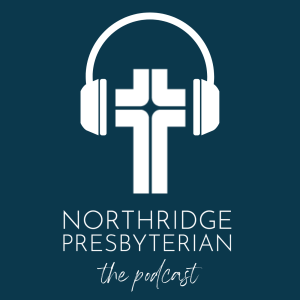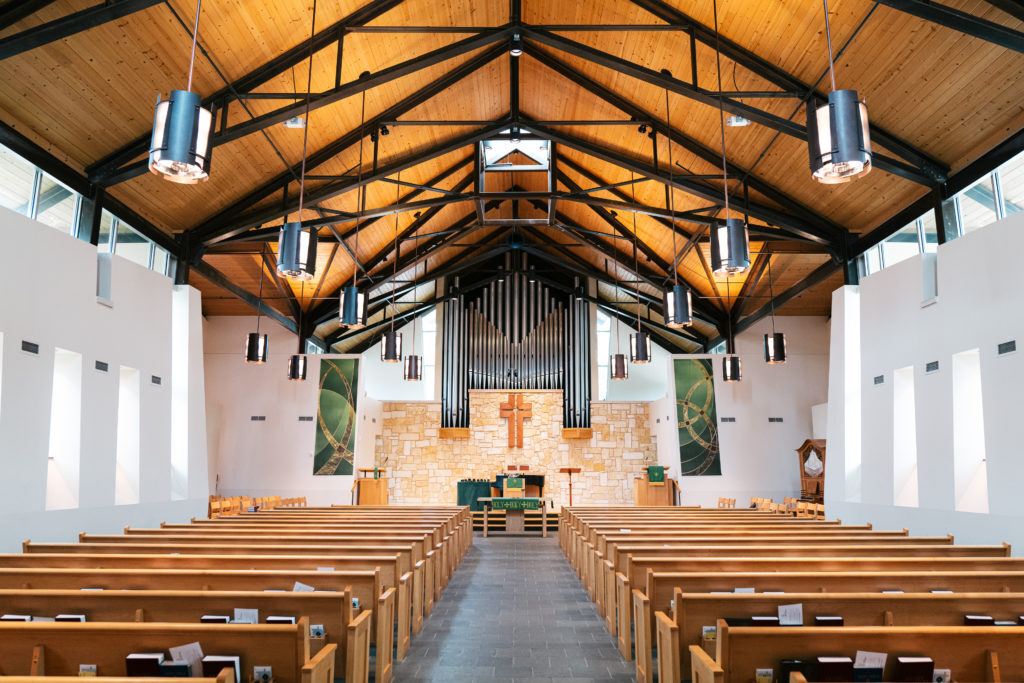Episodes

Monday Oct 03, 2022
Monday Oct 03, 2022
October 2, 2022
Scripture Passage: Acts 16:16-40
The Way of Jesus: Empowered to Act | Rev. Betsy Swetenburg
Music by AudioCoffee from Pixabay

Sunday Oct 02, 2022
Sunday Oct 02, 2022
September 25, 2022
Scripture Passage: Luke 2:41-52
The Way of Jesus: Enriched by the Ordinary | Rev. Betsy Swetenburg
Music by AudioCoffee from Pixabay

Sunday Oct 02, 2022
Sunday Oct 02, 2022
September 18, 2022
Scripture Passages: John 4:7-18
The Way of Jesus: Connecting at the Well | Rev. Betsy Swetenburg
Music by AudioCoffee from Pixabay

Sunday Oct 02, 2022
Sunday Oct 02, 2022
September 11, 2022
Scripture Passage: John 14:2-7
The Way of Jesus: I Am The Way | Rev. Betsy Swetenburg
Music by AudioCoffee from Pixabay

Sunday Sep 25, 2022
Sunday Sep 25, 2022
September 4, 2022
1 Thessalonians 3:9-13
Savannah Shivers
Music by AudioCoffee from Pixabay

Sunday Aug 28, 2022
Sunday Aug 28, 2022
August 28, 2022
Youth Sunday
Romans 12:9-18
Music by AudioCoffee from Pixabay

Sunday Aug 21, 2022
Sunday Aug 21, 2022
August 21: Church Stories - 1 Corinthians 13 - and the greatest of these is love…
Reflect
Love is patient, love is kind… This portion of the letter to the church at Corinth is perhaps the best known of all Paul’s writings and we are most used to hearing it read at weddings. How do you hear these words differently when you know it was written to a congregation in conflict?
Verses 8-13 suggest that we grow in wisdom and understanding as we grow older.
What is something in your faith that you understand better now than when you were younger?
What practices help you see God more clearly?
Connect
Have quotes from the Bible’s epistles ever been used to justify cruelty or injustice against
you or someone you love? How did that affect your view of the Bible? How did it affect your view of the apostle Paul?
What verse from this passage relates to what you think Christians need to hear right now?
Act
Take time to write a letter to your current church or to a church from your past. (You don’t have to deliver it!) Include your thoughts, praises, critiques, and observations about love and/or what 1 Corinthians 13 has taught you.
Factoid/Digging Deeper
“Paul says the same of human knowledge about God, whether written by a theologian, proclaimed by the prophet, or acted out by the healer. Even though a person can have outward appearance of knowing God theologically, receiving God’s word prophetically, working God’s works miraculously, and saying the unsayable, if that one is puffed up with knowledge or self-important about her or his faith, then there can be no witness to the One who in love emptied himself.” -Cynthia A. Jarvis from the Connections Commentary Year C, Vol. 1
Music by AudioCoffee from Pixabay

Sunday Aug 14, 2022
Sunday Aug 14, 2022
August 14: Church Stories - Colossians 3-4
Reflect
What special challenges would be experienced by such a faith community, especially one composed of new Christians?
What are the behaviors associated with being clothed in Christ? Think about stories about Jesus and the things he taught that provide the source for this list of behaviors.
What is the relationship between these behaviors and the guidance given to family relationships in 3:18-24?
Connect
The family relationships in Colossians 3:18 - 21 are based off of Roman household codes. I wonder how these family relationships described in this passage are similar and/or different from your own family relationships? Are these family relationships still relevant to us today? Why or why not?
How has forgiveness impacted your life? This could be forgiving yourself and/or others. Share a time you either forgave yourself and/or another person with someone close to you.
Act
Colossians 3:12 instructs us to “clothe [ourselves] with compassion, kindness, humility, gentleness, and patience.” I wonder what that really means to you? Brainstorm a list of actions and/ or ideas of what that really means to you, taking into account your own identities, history and experiences, and context. Then, share that list with a friend and/or family member, and, together, carry out one of those actions.
Factoid/Digging Deeper
Digging deeper- Watch this 6 minute video to better understand cultural, historical, and situational context of Epistles
https://bibleproject.com/explore/video/new-testament-letters-epistles-historical-context/?utm_source=web_social_share&medium=shared_video
Intrigued? Watch this 6 minute video to better understand the literary context
https://bibleproject.com/explore/video/new-testament-letters-literary-context/?utm_source=web_social_share&medium=shared_video
Music by AudioCoffee from Pixabay

Sunday Aug 07, 2022
Sunday Aug 07, 2022
August 7: Sea Stories- Matthew 14: 22-33 - Jesus Walks on Water
Reflect
It has been said that science tells us how, but the Bible tells us why. How does this statement help you think differently about miracle stories?
What does Jesus’s ability to walk on water suggest about his power?
What does Jesus’s walk on water suggest about his relationship with his disciples?
Connect
How have you made sense of the Bible’s miracles stories in the past? What guidance have you
received from faith leaders, family, and friends? Has it been helpful or not-so-helpful?
How has doubt impacted your life? This could be doubting yourself, others, or God. Share your journey of doubting with someone close to you.
Act
We frequently focus on Peter’s doubt in this story. What are some things that cause you to doubt? What helps you believe more fully? Make a list of your answers for these two questions and keep them for when you might need them the most.
Digging Deeper
For more on the miracles of the New Testament, see Jeffrey John’s The Meaning in the Miracles.
Music by AudioCoffee from Pixabay

Monday Aug 01, 2022
Monday Aug 01, 2022
July 31: Gospel Stories- Acts 8: 26-40 Philip and the Ethiopian Eunuch
Reflect
Arguably, both Philip and the Ethiopian found the way they looked at the world was changed by their encounter. I wonder what changed for each man?
The Ethiopian was a double outsider to Philip’s world. What might this text tell us today about how we are to treat the outsiders we meet?
Connect
Think about a teacher who helped you understand and appreciate scripture. Who was it and what did they do that is so memorable?
Who are some people you consider to be Ethiopian eunuchs - men and women who society treats as outsiders today?
Act
In your neighborhood, find at least one agency that helps serve different community needs (e.g. food, clothing, shelter, a place to gather and connect, etc.). Visit this organization and find out ways that they are welcoming to both outsiders and community members and ways that you can get involved. Then, share what you have learned with your friends and family and become involved together.
Factoid:
The scripture that the Ethiopian was reading without understanding is drawn from a series of passages referred to as the Suffering Servant Songs. They describe a leader whose strength is rooted in what the world describes as weakness. There are four of these songs, found in Isaiah 42:1–4; Isaiah 49:1–6; Isaiah 50:4–11; and Isaiah 52:13–53:12. How do these passages take on new meaning if you know the full story of Jesus?
Music by AudioCoffee from Pixabay

About Us
At Northridge Presbyterian Church, we believe that the church is a gift that everyone deserves to enjoy. The church is a community of people who are committed to doing life together – enduring life’s heartaches and celebrating life’s joys, seeking out laughter, pursuing a more just world, and following the path Jesus set out for us.
Northridge is an open and affirming congregation within the Grace Presbytery of Presbyterian Church (USA).






